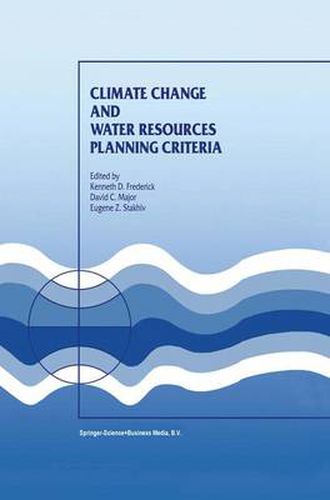Readings Newsletter
Become a Readings Member to make your shopping experience even easier.
Sign in or sign up for free!
You’re not far away from qualifying for FREE standard shipping within Australia
You’ve qualified for FREE standard shipping within Australia
The cart is loading…






This title is printed to order. This book may have been self-published. If so, we cannot guarantee the quality of the content. In the main most books will have gone through the editing process however some may not. We therefore suggest that you be aware of this before ordering this book. If in doubt check either the author or publisher’s details as we are unable to accept any returns unless they are faulty. Please contact us if you have any questions.
Global climate change is expected to have major impacts on water resources and aquatic ecosystems. This prospect presents planners, who are already struggling to meet the demands of growing populations and economies, with new challenges. This volume examines these challenges and the resulting conceptual issues for water planning and project evaluation practices. The book is the first attempt to consider whether and how water resources, planning principles and evaluation criteria should be altered in view of the potential impacts of anthropogenically induced climate change. The principles and procedures that are in use today along with new approaches to nonstructural flood plain management, watershed management, water markets, and wetland banking will serve as the basis for the policies and strategies that deal with climate variability and anticipated change. This collection of papers reviews what water management ideas work, which ones need to be changed, and how planners and managers should begin incorporating aspects of risk and uncertainty into management decisions to deal expertly with climate change.
$9.00 standard shipping within Australia
FREE standard shipping within Australia for orders over $100.00
Express & International shipping calculated at checkout
This title is printed to order. This book may have been self-published. If so, we cannot guarantee the quality of the content. In the main most books will have gone through the editing process however some may not. We therefore suggest that you be aware of this before ordering this book. If in doubt check either the author or publisher’s details as we are unable to accept any returns unless they are faulty. Please contact us if you have any questions.
Global climate change is expected to have major impacts on water resources and aquatic ecosystems. This prospect presents planners, who are already struggling to meet the demands of growing populations and economies, with new challenges. This volume examines these challenges and the resulting conceptual issues for water planning and project evaluation practices. The book is the first attempt to consider whether and how water resources, planning principles and evaluation criteria should be altered in view of the potential impacts of anthropogenically induced climate change. The principles and procedures that are in use today along with new approaches to nonstructural flood plain management, watershed management, water markets, and wetland banking will serve as the basis for the policies and strategies that deal with climate variability and anticipated change. This collection of papers reviews what water management ideas work, which ones need to be changed, and how planners and managers should begin incorporating aspects of risk and uncertainty into management decisions to deal expertly with climate change.